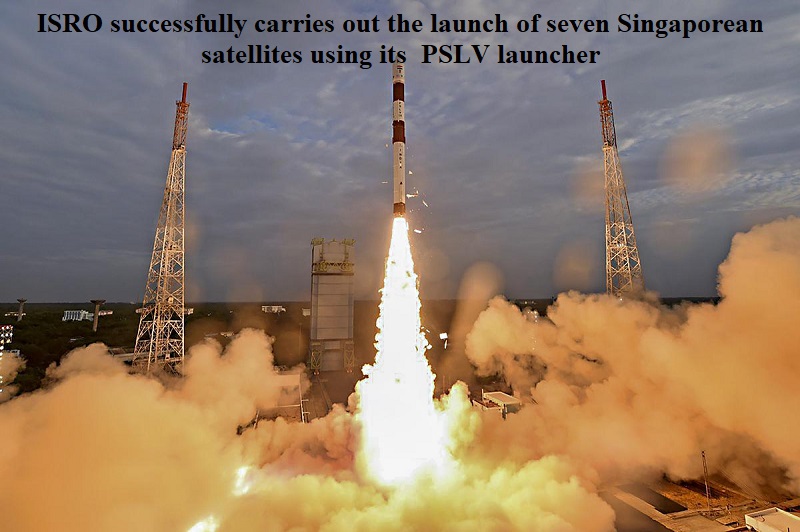
ISRO achieved another successful launch mission by using its Polar Satellite Launch Vehicle (PSLV) to place seven Singaporean satellites into orbit. The mission, which lasted approximately 25 minutes, saw the primary passenger DS-SAR radar-imaging Earth observation satellite and six co-passenger satellites reaching their designated orbits flawlessly.
ISRO Chairman Dr S Somnath expressed satisfaction with the “very perfect orbit accomplishment” of the PSLV mission, which marks the 431st successful launch of foreign-origin satellites by the Indian space agency since 1999.
D Radhakrishnan, chairman and managing director of NSIL (ISRO’s commercial arm), emphasized the significance of the event, as it marked a historic milestone with a single customer, the Singapore government and academia, utilizing the PSLV launcher for four launch missions. He expressed confidence that Singapore would continue to rely on ISRO-NSIL for future missions.
The launch is notable as it is the second mission conducted by ISRO in a month, a feat that hadn’t been achieved for nearly five years. The previous occurrence was in November 2018, when ISRO conducted launch missions for its LVM3/GSAT-19 and PSLV-HySIS in quick succession.
The PSLV rocket, configured without strap-on boosters, lifted off at 6:31 am from the first launch pad at Satish Dhawan Space Centre, Sriharikota, carrying a total payload of around 425 kg.
ISRO Chairman Dr S Somnath shared updates on upcoming missions, stating that the ‘TV-D1’ Gaganyaan flight would take place in September. The Gaganyaan crew module test flight will examine the abort systems (ejection mechanism) in case of mid-flight failure or emergency, ensuring the crew’s safety.
Following that, ISRO’s next orbital launch will be PSLV-C57/Aditya-L1, an Indian mission aimed at studying the sun from the Lagrangian Point 1 (L1), situated 1.5 million kilometers from Earth. The Aditya-L1 probe aims to study various solar phenomena, including coronal heating, coronal mass ejections, space weather dynamics, and particle and field propagation.
ISRO expects Aditya-L1’s payloads to provide vital information for understanding the sun’s impact on space weather and various activities occurring in the Sun and its atmosphere. The mission is crucial for advancing our knowledge of solar science.

Post Your Comments